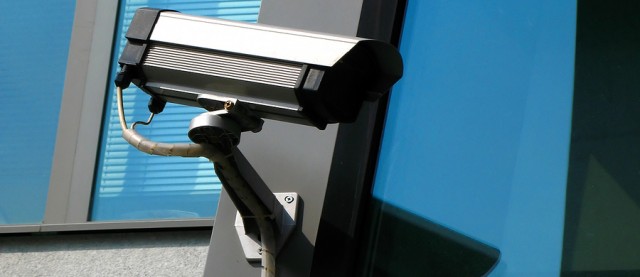Shocking Survey Results: If the Public Won’t Report Suspicious Behaviour, Do We Need Cameras That Will?
Posted by: IndigoVision | 20 day(s) ago
A survey commissioned by the upcoming Transport Security Expo asked 2000 people across the UK how they would respond if they noticed “odd occurrences at a neighbouring house or vehicle”. The shocking results showed that nearly a quarter of those polled would do nothing.
Can the general public change, or do we need more intelligent cameras using video analytics to report suspicious behaviour?
Traditionally, video analytics have required additional server hardware to carry out video content analysis, making it an expensive option and preventing widespread deployment. However, this intelligence is now available in the camera, reducing costs significantly.
“Over the last five years the core functions of analytics have remained largely the same but the main difference is the increased processing power and the movement of analytics from back-end servers to those running ‘at the edge’, in other words, inside the actual cameras.” explains Tom Frame, IndigoVision’s System Architect in this interview with Professional Security Magazine.
IndigoVision will be showcasing its intelligent cameras at the Transport Security Expo, which is being held at the London Olympia on the 2nd-3rd December.
Learn about IndigoVision’s intelligent cameras here.
Some of the British public wouldn’t raise the alarm if they noticed suspicious behaviour.
That is suggested by a survey by OnePoll on behalf of the annual aviation, maritime and rail industry event Transport Security Expo (www.transec.com); which this year has added Major Events and Secure Transportation modules. The expo organisers suggested that despite advances in security technology as showcased – such as CCTV analytics – there is still a need for members of the British public to be proactive when noticing something out of the norm.
For the survey, 2000 people across the country were presented with two scenarios and given a choice of responses for how they would react. The first scenario proposed if for a time respondents noticed odd occurrences at a neighbouring house or vehicle; for example strong and unusual odours, blinds drawn day and night, and/or large quantities of unusual equipment or items being delivered at strange hours.
While near three in ten, 29pc said they would phone the police and 44pc would call a confidential tip line, close to a quarter (22pc) would simply do nothing: either because they consider it ‘none of their business’ (13pc) or because they wouldn’t know what to do (9pc).
The second scenario asked what the those polled would do if they noticed a person acting suspiciously in a crowded public place such as a train/bus station or shopping centre – for example taking furtive notes or photos. While half (54pc) said they would approach a nearby member of staff or authorities with their concerns and 13pc would ring a confidential tip line, 30pc would do nothing: either because it’s ‘none of their business’ (19pc) or because they wouldn’t know what to do (10pc).
Dr Dave Sloggett is a member of Transport Security Expo’s Advisory Board, which also includes such names as former Security Minister Admiral Lord West and the Home Office Director for Security Industry Engagement Stephen Phipson. Dr Sloggett, who has over 40 years’ experience in the military and law enforcement sectors, specialising in the field of intelligence analysis and human behaviour working with NATO, feels that despite advances in checkpoint security, body scanning, CCTV analytics and database integrations such as those exhibiting at the show in London Olympia this December, nothing can replace the eyes of the public.
He says: “The public play a key role in being the ears and eyes on the street for the national security effort during major events, on transport networks and on a day-to-day basis in general. It is vital that they do something – even if it’s just ringing a confidential tip line – when they notice suspicious behaviour that could threaten the security of people or goods. This survey reveals that there is still a significant percentage that don’t know how to react, or feel it’s ‘none of their business’, which is an attitude which could be no less than catastrophic.”
Transport Security Expo runs on December 2 and 3 and is a free-to-attend event. The conferences focusing on ensuring the safe movement of people and goods will explore topics such as the legacy of London 2012, transport and logistics at the Glasgow 2014 Commonwealth Games, the Isle of Wight Festival and an outlook report on the global threat posed to major events and transport critical infrastructure, including cyber crime.
New technologies
At IndigoVision, System Architect Tom Frame says: “Over the last five years the core functions of analytics have remained largely the same but the main difference is the increased processing power and the movement of analytics from back-end servers to those running ‘at the edge’, in other words, inside the actual IP cameras. Further to that, improvement in facial recognition means that this will move from the realms of science fiction to reality.”
Peter Jones, CEO of Transport Security Expo organizers Nineteen Events, added: “Our annual event is a showcase for the absolute cutting-edge in products and services for transport security and despite the technology on display being breathtaking, we can’t escape the importance of people helping us keep them and their goods safe.”

